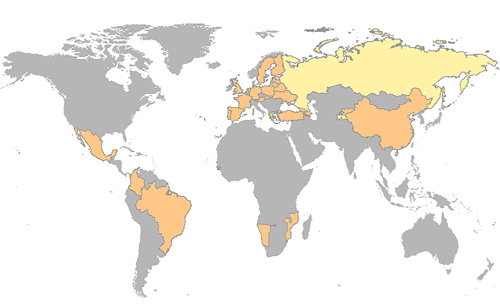Today is 8 of December, Monday
Санкт-Петербург 0°C
Санкт-Петербург 0°C
Baltic Floating UniversityEducation and training in marine science
“Baltic Floating University” (BFU) is a component of the “Floating University” programme, which was introduced in 1991 by IOC UNESCO. BFU was established by IOC UNESCO in 1993 in co-operation with the Russian State Hydrometeorological University (RSHU, St.Petersburg). Later, Helsinki-based Baltic Marine Environment Protection Commission (HELCOM) also gave to BFU its co-sponsorship.
In 1996 the Floating University project (including its BFU component) has become part of the IOC efforts in capacity development in the Member States: the IOC Training, Education and Mutual Assistance (TEMA) Program.
The Baltic Floating University (BFU) gives training for young generation of researchers in collecting and analyzing hydro-meteorological and environmental data and in view of promoting regional and inter-regional cooperation between universities that teach marine science and integrated coastal zone management. Contributing to the HELCOM efforts in monitoring the environmental situation in the Baltic Region, BFU carries out standard complex observations at the so-called HELCOM monitoring stations. With oceanographic data from the Baltic Sea BFU contributes to the Baltic Ocean Observing System (BOOS, part of the Global Ocean Observing System, a program of the Intergovernmental Oceanographic Commission – IOC of UNESCO), as well as to the BED – Baltic Environment Database (Stockholm University, Sweden). Through the project, RSHU contributes to a number of national programs, the Federal Target Program “The World Ocean” on the first place.
Many of the BFU students come to St. Petersburg – a beautiful and historical city and a home city of the BFU project – for the first time. The Russian students guide them through the city and the St. Petersburg’s world-class museums. Through these activities and personal contacts the BFU project contributes in a substantive way to the “Promoting intercultural dialogue” Program of UNESCO. Since 1993 the BFU expeditions have been carried out annually (2 to 3 weeks). The target groups are under-graduate and postgraduate students. Cruise data are used for writing B.Sc. and M.Sc. theses.  28 participant countries Between 1993 and 2007 over 250 students and young researchers from 28 countries of Europe, Asia, Africa and America have participated in BFU project. Close collaboration has been established with a number of universities in Western Europe who regularly send their students to the BFU cruises (Aveiro, Portugal, Cadiz, Spain and Plymouth, UK), as well as with Baltic University Programme (Uppsala, Sweden).
|
|
||||||||||||||||||||||||||||||||||||||||||
|
|||||||||||||||||||||||||||||||||||||||||||